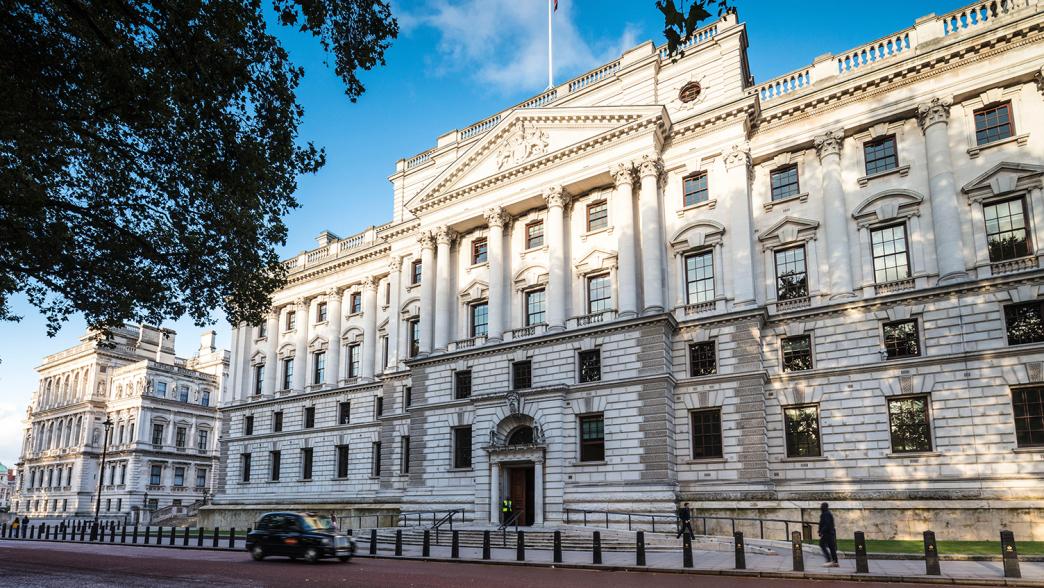Treasury's Covid approach contributed to "tug of war" in government
The Treasury’s secretive approach to working with other departments hindered aspects of the government's Covid pandemic response for much of 2020.

The Treasury’s secretive approach to working with other departments hindered aspects of the government's Covid pandemic response for much of 2020, finds a new Institute for Government report.
Published today, The Treasury during Covid: What lessons can be learned from the pandemic? examines the Treasury’s impressive role in designing and delivering economic support schemes – as well as the problems that undermined government decision making. It draws on over a year of research and conversations with former Treasury officials and others who worked with the department during Covid.
The report praises the Treasury’s rapid roll out of major support programmes for employees and the self-employed, as well as its introduction of business loan guarantees, which were vital in avoiding a huge rise in unemployment and widespread business failure. The Treasury worked well with other departments to identify the people, places and sectors suffering most during the pandemic, and its policies were helped by impressively close working with HM Revenue and Customs, the British Business Bank and Bank of England.
But the IfG report flags several episodes which suggest that the Treasury’s approach contributed to problematic policy decisions at the centre of government. “Scarred” by recent experiences – in particular during the Brexit referendum campaign – in publishing significant analytical work, the Treasury deliberately chose not to share some analysis across government, engaged in a limited way with external experts, and vetoed suggestions to create a similar structure to SAGE for socio-economic evidence.
With the Cabinet Office in 2020 lacking structures to properly gather and integrate analysis from across government, departments shared evidence strategically – which in the Treasury’s case meant helping the chancellor ‘make the economic case’. This contributed to a “tug-of-war” between health policy makers and the Treasury in autumn 2020, which in turn led to poor decision making. For example, the Treasury’s “optimism bias” lay behind its “Eat out to Help Out” policy – which was inconsistent with scientific advisers’ assessment of the risk of a second Covid wave in summer 2020.
To strengthen the response to future crises, and to improve how the department operates in ‘normal’ times, the new IfG report’s recommendations include:
- Maintaining the Treasury’s agility to respond flexibly to shocks while providing greater incentives for staff to develop stronger technical expertise in some areas.
- Strengthening the Treasury’s capacity to generate and use high-quality evidence, with the appointment of a distinguished external economist as its chief scientific adviser.
- Ensuring the Treasury is more open and collaborative with other government departments and the rest of the centre of government.
- Strengthening the Cabinet Office to help it break down departmental silos and to synthesise socio-economic evidence on domestic policy issues.
- The Treasury publishing more of its research (although not necessarily policy advice) in a timely way to increase transparency about the evidence used to inform policy decisions and to improve the quality of that evidence by opening it up to expert external scrutiny.
Gemma Tetlow, IfG chief economist and report author, said:
“The pandemic brought out both the best and the worst in the Treasury. Officials and ministers rose to the enormous challenge of dealing with a crisis of previously unimaginable proportions, preventing a huge rise in unemployment and widespread business failure. But the crisis also highlighted existing areas of weakness, particularly in the Treasury’s approach to conducting and sharing technical analysis.”
Olly Bartrum, IfG senior economist and report author, said:
“The Covid pandemic was characterised by complex interdependencies between the spread of the disease and people’s economic behaviour. Responding effectively required government to bring together evidence from a wide range of experts across multiple departments to inform a balanced policy. The Cabinet Office lacked the structures to synthesise evidence effectively until late 2020. In that environment, the Treasury’s secrecy and inclination towards tactical sharing of information contributed to decision making becoming a ‘tug of war’.”
Notes for editors
- A link to the full report and an accompanying comment piece can be found on our website.
- The Institute for Government is an independent think tank that works to make government more effective.
- For more information, please contact press@instituteforgovernment.org.uk / 0785 031 3791.
- Topic
- Public finances Coronavirus
- Keywords
- Economy Business Public spending
- Political party
- Conservative
- Position
- Chancellor of the exchequer
- Administration
- Johnson government
- Department
- HM Treasury
- Public figures
- Rishi Sunak
- Publisher
- Institute for Government